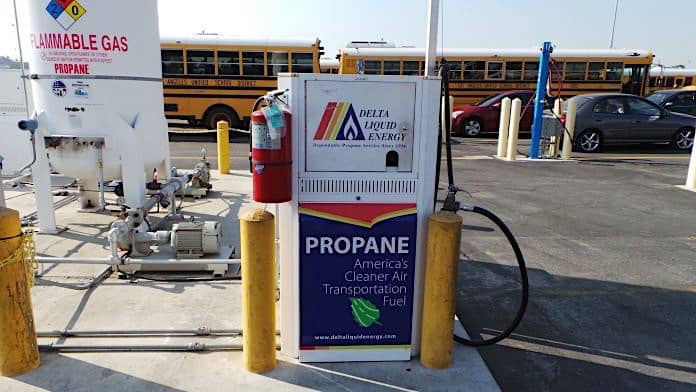School transportation officials in West Virginia now have another alternative-fuel option at their disposal—propane autogas. The state Board of Education this week approved a waiver of Policy 4334: Minimum Requirements for Design and Equipment of School Buses in favor of adding propane as an alternative fuel source for the state’s school buses.
Ben Shew, the executive director of the state DOE’s Office of School Transportation that oversees the annual school bus bid, said some counties have already expressed interest in propane.
“We are in the process advertising the bus bids now, and we should have them back in November,” he added. “The first buses that will be purchased from this bid will be in July 1, 2013.”
Gov. Earl Ray Tomblin also instituted a task force to review all state vehicles using propane or CNG. Shew said those findings are expected to be finalized next month.
“The switch will save money and promote a cleaner environment,” said State Superintendent of Schools Jorea Marple. “About 3,000 buses currently run every school day in West Virginia and travel over 46 million miles a year. The adoption of propane could save an average of $3,100 per bus, annually.”
Shew noted his office expects counties to immediately begin purchasing the propane buses to take advantage of the reduction in fuel costs. He also said the state’s school aid formula will take into account the extra cost of the propane buses so that the county will not have to bear all of that initial cost increase.
Propane has been adopted by more than 25 states, including Ohio and Pennsylvania. A rising number of school districts across Texas, California, Arizona and Oregon are placing orders for propane-powered school buses. Mesa (Ariz.) Unified School District has saved 32 cents per mile with propane autogas since last year, according to ROUSH CleanTech.
Before the board voted, Shew gave a presentation containing key facts about the state bus fleet: 46 million miles covered and 6.3 million gallons of diesel consumed each year. He said a switch to propane could yield fuel-cost savings of up to 40 percent.
According to Shew’s analysis, which used Ford’s 6.8-liter V10 platform as a baseline, autogas engine upgrades would bring a premium of about $10,000, and the fueling infrastructure investment would cost from 5 to 10 cents per gallon. If the school district converted 90 percent of its fleet to run on propane, the payback period is estimated to be 3.2 years. Fuel cost savings could add up to more than $3,100 per bus each year.
In addition to the cost savings, the use of propane and propane accessories offers many advantages over gasoline fuel, stated the West Virginia DOE. Propane is less flammable, the tanks are more puncture resistant and it will not contaminate water or soil. Because it is domestically produced, it helps to reduce our nation’s dependency on foreign oil.














